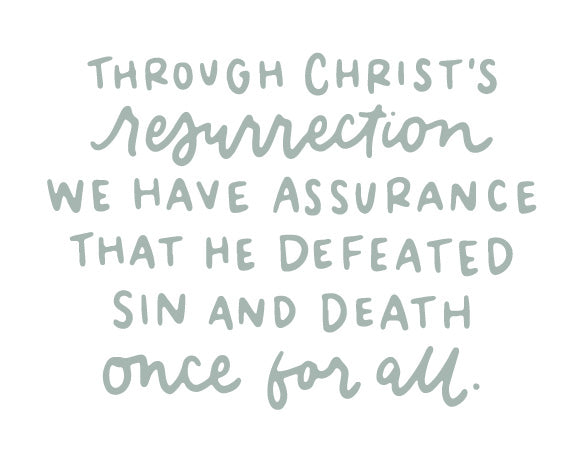Passion week is the week between Palm Sunday and Easter Sunday. During this week, Christians have historically reflected on the time in Jesus’s life between His entrance into Jerusalem and His death and resurrection. Traditionally, the elements of this week have been marked by different days.

The Elements of Passion Week:
Palm Sunday (Matthew 21:8–1, Mark 11:8–11, Luke 19:36–44, John 12:16–19)
On this day, we remember Jesus’s entrance to Jerusalem—often called “the triumphal entry.” Here, He was received by the people and worshiped as their King. Though they expected a king who would take the throne by force and power, Christ’s plan was one of sacrifice and suffering. As we later see, these same people rejected Him and sent Him to the cross.
Maundy Thursday (Matthew 26:26–30, Mark 14:22–25, Luke 22:17–20, 1 Corinthians 11:25)
Maundy comes from the Latin word for covenant. So, Maundy Thursday is the day when the church celebrates the New Covenant that was instituted at the Last Supper of Christ, where He shared the Passover meal with His disciples. Many churches today still hold a Maundy Thursday service where they celebrate the Lord’s supper and share in bread and wine. Other churches might celebrate this Passover meal on Good Friday instead.
Good Friday (Matthew 26–28, Mark 14–15, Luke 22–23, John 18–19)
Good Friday is the day Christians remember the death of Christ. It is typically celebrated as an incredibly somber day. Many people will wear black, fast all day, and reflect on the excruciating details of Christ’s death. Yet, we call it Good Friday to remind us of the beautiful and good gift His death was for humanity.
Holy Saturday (Matthew 28:1, Mark 16:1, Luke 22:56)
The Saturday between Good Friday and Easter is called Holy Saturday (also called Silent Saturday). The day before Jesus’s resurrection was the Jewish Sabbath day. The body of Jesus was laid to rest in the tomb, and while He rested there, the people of Jerusalem— including His disciples—rested as well. Today, Christians acknowledge this day as a day of silent rest and reflection where we have one final day to prepare for the great celebration of Easter Sunday.
Easter Sunday (Matthew 28:1–10, Luke 24:1–12, Mark 16:1–8, John 20:1–18)
Unlike the rest of Passion Week, Easter Sunday is one of the most well-known days of the year. Christians (and even non-Christians) celebrate this day with church services, family gatherings, picnics and egg hunts. But the fun of this widely celebrated spring holiday does not even begin to compare with the joy of the reason behind these celebrations. Easter Sunday is the most important day for Christians, because the resurrection of Christ changes everything.

Why Does This Matter?
1 Corinthians 15:17 tells us that “if Christ has not been raised, your faith is worthless; you are still in your sins.” The resurrection is everything for us as Christians. Through Christ’s resurrection, we have assurance that He defeated sin and death once and for all, that we have been pronounced righteous in the eyes of God, and that our own lives will not end in death, but in resurrected life where we will dwell with Christ for eternity.

Preparing for and celebrating Passion Week allows us to quiet our hearts, reflect on and remember the goodness of God as revealed through the death and resurrection of Christ, and truly sit with the reality that Jesus Christ rose from the dead, and because of this, our sins are forgiven.
How Can I Celebrate Passion Week?
Practically, Passion Week can be celebrated in a variety of ways. If your church or a church nearby holds services throughout the week, you can attend those. You can also individually remember each of these days in your personal Bible study throughout the week—you can read through the passages we have referenced in this blog! But there is no right or wrong way to celebrate Passion Week—we just encourage you to find some way to reflect on the details of Christ’s death and resurrection this week. For these are the most important days in all of history.
Additional Resources:










